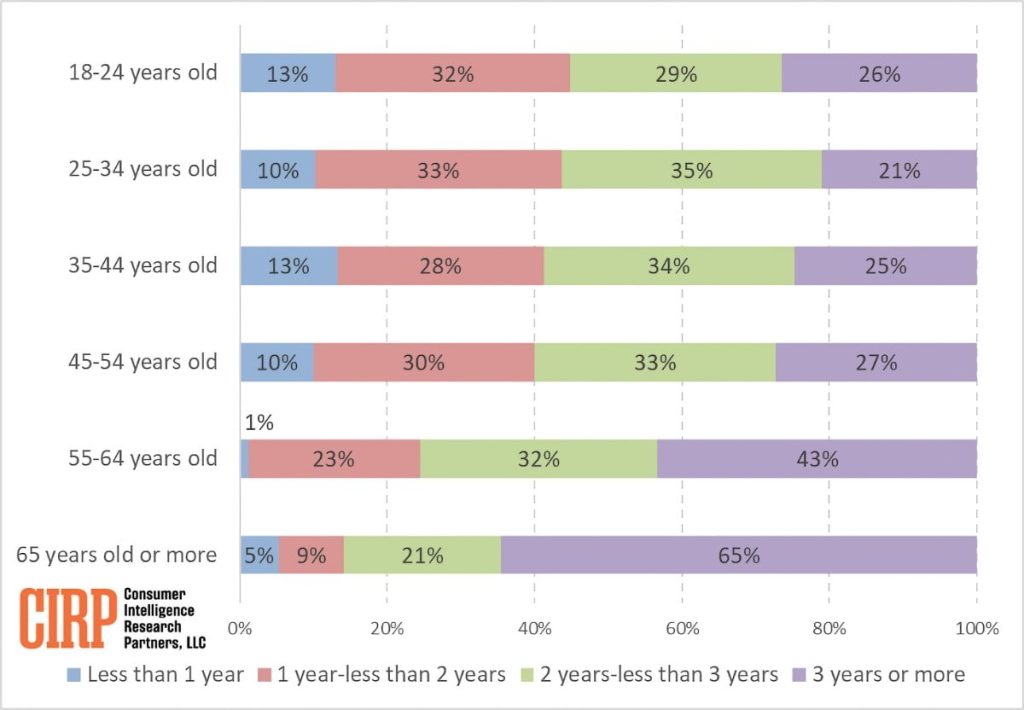Smartphones have become an indispensable part of our lives. People of all ages, from 7 to 70, depend on these devices for communication and everyday tasks. n line with this, many of us purchase a new smartphone every 1-2 years. Smartphones have been quite successful in nearly every segment over the past few years, and the differences between old and new models are smaller than ever. Even though we know this, many of us still change phones often, with younger users upgrading to newer models even more quickly. Here are the details…
Younger Apple users upgrade their iPhones more frequently than older customers
According to a recent study by the Consumer Intelligence Research Partners (CIRP) on Apple users, younger people tend to upgrade their iPhones to newer models more frequently than older customers. For example, 45% of users aged 18 to 24 had their previous phone for less than two years, which is over three times the rate of those aged 65 and older. 65% of customers aged 65 or older kept their previous phone for at least three years, a figure more than 2.5 times greater than the percentage observed in the 18 to 24 age group.

CIRP’s study also found that 40% to 45% of consumers between 18 to 54 years of age retired a phone that was under two years old, and 21% to 27% of consumers aged 55 or older gave up a phone they held for three years or longer. In fact, this situation is not too surprising. As many of us know from personal experience and observing our close circles, young people spend more time on their smartphones. Every day, millions of people consume and create content on social media platforms like Instagram and TikTok.
These trends, along with many others, push young people to change their phones even when they might not need to. Brands, aware of this, target young users with their advertising. Another possible reason is the interest many young people, including the editor who wrote this news and the readers, have in technology. However, it wouldn’t be accurate to say we are solely responsible for driving up these numbers.
RELATED:
- Redmi Note 12s vs Redmi Note 12 Pro 4G: Specs Comparison
- Apple iPhones owners are being locked out of their stolen phones by thieves
- Xiaomi 13 Ultra Unboxing & Hands on: Wow, a camera able to make a call!
- Apple may bring another Periscope Lens supplier for its iPhone 15 Pro Max
- Realme 11 5G appears on Bureau of Indian Standards ahead of…
(via)







